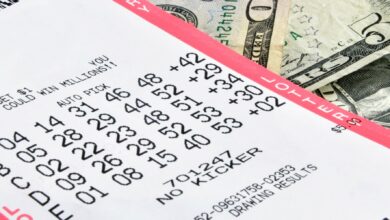A
A
A
The coronavirus has taken its toll on the world economy, and the recession may be about to begin. It’s still early to anticipate if the hit from the downturn will be short or prolonged.
The hit may be short, prolonged, or difficult, and we don’t need to focus on the possible consequences. It’s high time to take the necessary steps to come up with sound mechanisms to help us survive the slowdown ahead of us. The best thing is to know how to manage your finances, and once you succeed in it, you’ll already have hit the first and most crucial step in the mitigation of any financial pain during the coming difficult moments.
It’s crucial that before embarking on any changes in impacting your money, speak to a financial consultant first. After gathering the right information from those financial management experts, proceed to implement the following money-saving ideas to help you survive the impending recession.
Read More »
1. Decrease the expenses where possible The best money-saving practice in such an awkward moment is to become as frugal as you can. Saving more money will help you achieve the saving level that’ll make the recession easier to manage. Start doing more with less and ensure that your family expenses are limited. Instead of taking your family out 5 times in a month, try to do it twice. They’ll understand that these aren’t normal times, and they’ll get back to their normal routine after the recession wave has passed. If you’re used to driving all your cars, try using one. Identify all the areas that eat up most of your money and mend them. Decreasing your spending will pave an easy path for you to survive the recession.
2. Plan your budget pay your debts on time
A debt is forever a burden that’ll torment you regardless of the level of your income. During the recession, jobs will be scarce, and there’ll be no money to pay a single debt. It’s therefore important to pay down those debts beforehand as they’ll only add stress on you while you’ll be struggling to manage an already stressful moment. This is the right time to commit to the payment of all your debts obligations and taking stock of your monetary situation.
Recession is the time when covering daily expenses is stressful, leave alone paying debts. Such situations often make debts spiral out in a way that they’re difficult to control. Carrying huge debts is extremely risky as a slight change in an external factor will have a significant impact on your ability to pay the debts. Maybe you’re able to manage payments today, but losing a job or a hike interest rate can change things to become worse than you anticipated.
Establishing a budget is the primary step to successful payment of debts. Ensure that the budget is accurately reflecting the finances coming your way and how your household will spend the money. If you find yourself adding more debts instead of tackling them aggressively as you had intended, establishing a budget will help in identifying money spending areas you need to limit or cut back so that you can get money with which to pay down the debts.
3. Diversify your investment
Businesses consider it necessary to diversify their earning streams. It’s, however, essential to consider diversifying their investments where the economy isn’t running normally. The index funds and the stock market are safe investments, although they decrease in value sometimes. Concentrating your investment in one area or section may eventually turn them upside down during a financial crisis. Consider going through your businesses and try to spread the risks across various assets and industries.
4. Keep checking your retirement savings
Those who are about to retire may wonder about the effects of the recession on their retirement funds. There’s a possibility that their assets may have depreciated from the downturn in the market. Don’t rush to cash out your investment before considering the overall timeline.
If one doesn’t need the funds within a short period, or if they’ve got emergency funds they can depend on, there’ll be ample time for the savings to generate interests. Always remember that depreciation isn’t a loss until one sells their property. There have been recessions in the past, and history has proved that markets recover. Investing more during the situation will allow you to reap benefits when the market recovers.
5. Revisit your emergency funds
You’ve been setting aside some emergency funds, and you’ll need to save even more as the recession strikes. While most people have these emergency funds, the troubling question is on how much to set aside. Remember that the world is coping with a health issue, so, 6 months can be reasonable, although many other factors influence the emergency fund plan. For instance, do you have a job? Are you married? If the answer to these questions is yes, you should be able to get by with 3-4 months. If you’ve got some assets to sell, if the need arises, it becomes easy to establish and build up your emergency fund.
6. Earn extra money
Reliance on one source of finances is an excellent option for many people, but a time comes when the economic downturn presses this option and renders it a risk. The recession will leave millions of people without jobs, and businesses that won’t stand the economic waves will close. This will exert a lot of financial pressure on households. You’ll only withstand this if you’ve got multiple sources of income.
Take care of your credit card
You need to treat your credit card like gold, and if you’ve got a good credit score, you can get excellent lending rates. You can maintain high credit scores by paying bills on time. If the score is low, consult your bank on how you can raise it.
The coronavirus has made the economy tough. We don’t have to give up and to maintain our hopes; we should always hope for the best but prepare to handle the worst.






